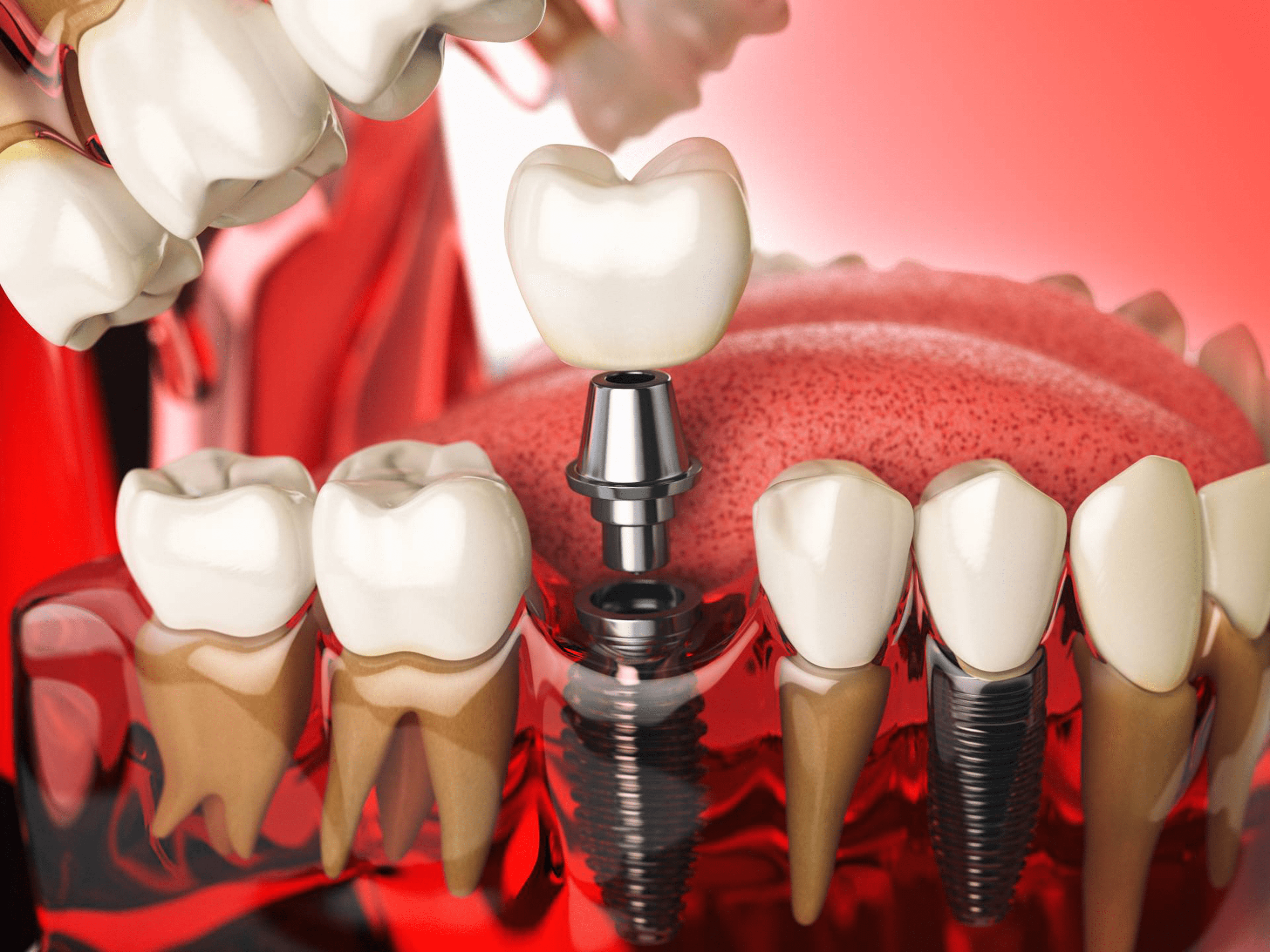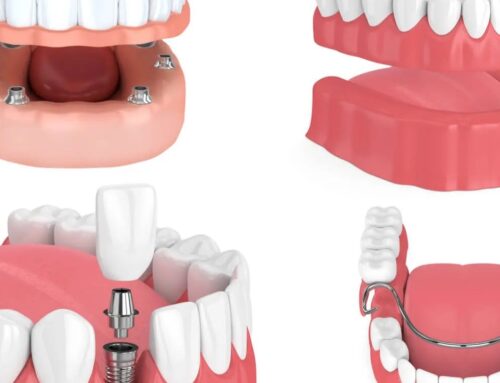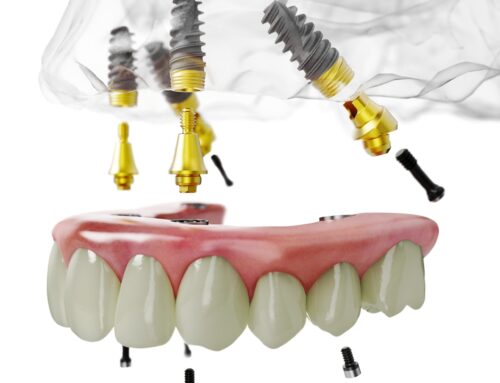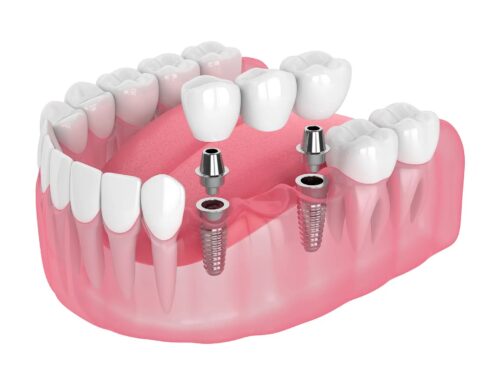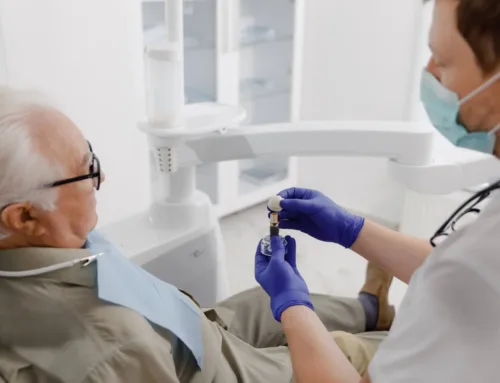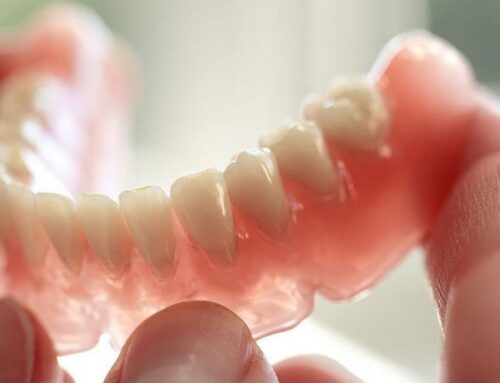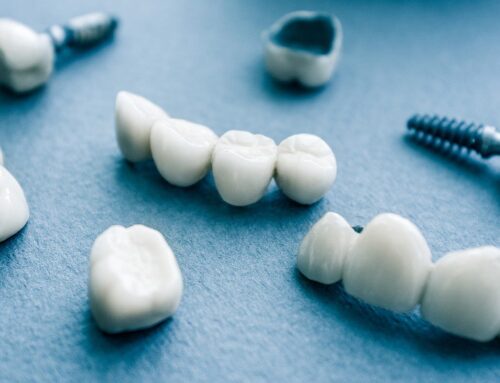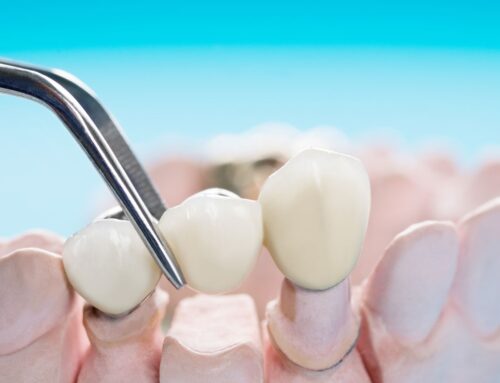When are Implants Necessary?
Tooth Extraction and Replacement vs. Repair Treatments
If a tooth is in some way damaged, it needs to be repaired or removed to prevent further issues from occurring and to ensure the patient doesn’t continue to suffer pain.
A dental implant is a rather serious procedure that is proven to deliver excellent results for patients. While there are several types of implants, having one placed in a patient’s mouth is only necessary if the tooth needs to be extracted. In some cases, though, a tooth can be repaired, negating the need for an artificial one.
A dentist will determine whether a patient’s tooth can be fixed or if they need to proceed with an implant. To help clarify these situations, let’s review the various aspects of a dental implant in addition to outlining the situations where this treatment is necessary. Lastly, we’ll explore what a tooth extraction looks like and how replacement teeth work.
When is an Implant Necessary?
If the tooth does not need to be removed, then an implant will not be necessary. A dentist will most likely opt to repair a tooth if that’s a possibility. This means a patient will undergo a treatment like a bonding or filling instead of an extraction and replacement.
An implant is only necessary when saving the natural tooth isn’t an option. If feasible, a dentist might choose to perform a root canal—where the inner pulp is removed—instead of extracting and replacing a tooth.
If a tooth has decayed to a certain point or has been injured as the result of an accident, it most likely needs to be removed. Once removed, an implant will be inserted followed by an artificial tooth being attached. Then it’s on the patient to care for the artificial tooth as they would a natural tooth, including attending regular dental checkups.
Dental Implants
For many patients, implants are considered the most efficient and effective method to replace an injured or missing tooth. This also applies to those who are having issues with multiple teeth. They work by surgically inserting a metal frame into a jawbone. Once secure, a dentist can place an artificial tooth or bridges or dentures into the frame.
The implant acts as a makeshift root, ensuring the artificial tooth stays in place so that the patient can eat and speak with ease and without pain. If you consider that dentures tend to shift and create comfort issues, it’s clear that implants serve a distinct and important purpose.
The benefits of an implant, include:
- Greater comfort
- Clearer pronunciation
- Improved facial appearance
- An increase in oral and overall health
- Durability as they often last a lifetime
- Protection for the jawbone and teeth
- They decrease the chance of bone loss and further tooth loss
In addition to traditional implants, Georgian Dental offers two modern versions that might be recommended to patients. Keep in mind that your dentist must first determine if you are a candidate for a specific treatment. This typically depends on a patient’s age, oral and overall health and the strength of their jaw and gums.
All-on-4 Implants is a specialized implant that has a 98% success rate. This system utilizes four implants to make the best use of the available bone. Once in place, dentures can be attached and the improvement to a patient’s chewing, biting and speaking is immediate.
This treatment is a good option for those missing several teeth and for those who are unhappy with their current dentures. Additionally, it’s recommended for those who have suffered significant bone loss and would require a bone graft before receiving an implant. All-on-4 lets patients bypass bone grafting, which can be pricy and painful.
This system works by placing two implants in the front of the mouth at a 90-degree angle and two implants at the back at a 30-degree angle. This creates greater bone to implant contact, ensuring there is enough support to hold it in place.
Implant Supported Dentures is an innovative solution that is as convenient as removable dentures but offers the functionality and durability of dental implants.
Patients love these dentures because they don’t lead to painful sores and won’t loosen causing them to feel embarrassed or experience discomfort. Furthermore, there is no need for denture paste and, in some cases, a patient won’t need a plate covering the roof of their mouth, which can impact their enjoyment of food.
When Will Repairs Suffice?
If a tooth is chipped or broken, there’s a chance you will not need a dental implant. In these cases, your dentist will try to repair the tooth.
Enamel that covers a tooth is the hardest tissue in the human body. Despite this, it can still break from biting down on certain foods or from a mouth injury. If you find a piece of a tooth in your mouth, don’t panic because there are several ways that it can be quickly fixed. The first step, though, is to visit your dentist to undergo an examination and to decide on which treatment to pursue.
Treatment options to repair a tooth include:
- Dental filling or bonding can repair a tooth if only a small portion has been chipped or broken or if the crack is slight. Bonding, which uses a tooth-coloured composite resin, is often employed if the repair is relegated to the front teeth.
- If a large piece of a tooth has been impacted, a dental crown might be the best repair method. This is where the dentist will file down part of the tooth and cover it with a crown to fix the shape and protect it from further damage.
- If the injury is significant enough, a dentist might recommend veneers, which are shells that cover the front of teeth to replace the part that broke.
Whatever the best course of action is, your dentist should do everything in their power to save the tooth. While implants are a great way to replace a tooth, and improve one’s oral health, nothing beats the functionality or health benefits of natural teeth.
Tooth Extraction
A tooth extraction is never a pleasant experience and is often treated as the last resort. If your dentist determines this procedure to be necessary, then it should be performed soon after diagnosis.
The common reasons for a tooth extraction are that it’s damaged, infected or decayed to a certain point. An extraction could also be required if a tooth is misshapen. This will prevent overcrowding or create room for an adult tooth to develop.
This is a common procedure that can be performed during a routine checkup. To remove a tooth, the dentist must widen the socket and separate the tooth from the ligament. It’s relatively quick and patients can receive sedation if they want. Our team will work with you to determine the level of sedation that would best suit you.
The missing tooth creates a gap that neighboring teeth will try to shift into. Because of this, a patient should receive a replacement tooth shortly after the extraction is complete.
Book an Appointment Today!
If you have a tooth that needs repair or needs to be extracted or if you’re due for a regular checkup, then take advantage of our free, no-obligation consultation.
Appointment Request
If you’re interested in any of our procedures, and would like to meet with one of our dentists to discuss options, costs and get additional information, complete this short form and we’ll give you a call to arrange for a no-obligation appointment at our Barrie clinic.
